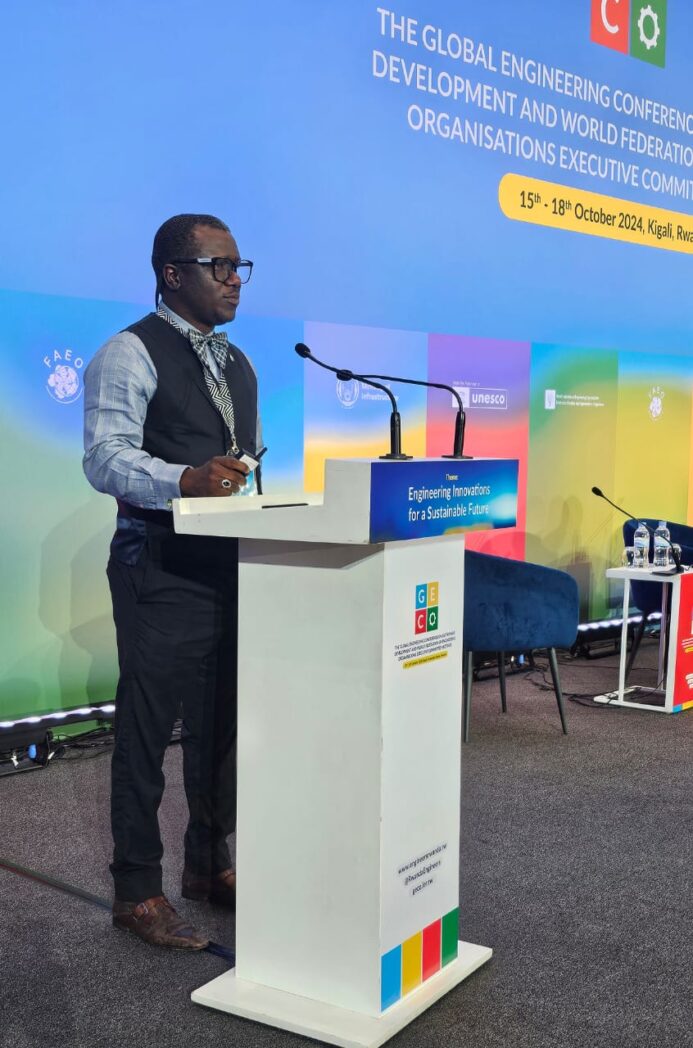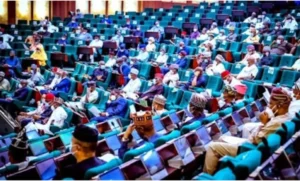
Expert advocates for integrated green infrastructure to mitigate climate risks, improve life quality
By Matthew Denis
An Expert and National Secretary General of the Nigerian Institution of Highway and Transportation Engineers (NIHTE), Dr. Mudasiru Bola has called for the inclusion of integrated green infrastructure to mitigate climate risks and improve the quality of life globally.
He argued that Synergistic Approach to Urban Resilience and Sustainability has enormous benefits to the ecosystem.
At the recent Global Engineering Conference (GECO) 2024 in Kigali, Rwanda Dr. Mudasiru presented a comprehensive framework for optimizing urban resilience and sustainability through integrated green infrastructure, adaptive design, and climate-resilient planning. He pinpointed that synergistic integration empowers the urban ecosystem to become more resilient, adaptable, and self-sustaining, ultimately ensuring a healthier and more sustainable urban future.
Dr. Mudasiru’s presentation emphasized the imperative of sustainable urban design, exploring the synergistic integration of Green Infrastructure (GI) Urban parks, green roofs, rain gardens, urban forestry programs, and wetlands restoration to mitigate urban heat islands and environmental degradation.
“Adaptive Building Design Climate-responsive architecture, modular and flexible design, resilient materials, and smart growth strategies to enhance resilience and adaptability.
“Climate-Resilient Planning: Climate risk assessments, vulnerability mapping, urban heat island mitigation, flood-resilient design, and community engagement to minimize climate-related risks.”
The expert summoned that the key takeaways from the presentation are anchored on innovative solutions for sustainable development (SDGs 9, 11, 13)
“Enhanced infrastructure resilience through integrated GI and adaptive design and reduced environmental footprint via regenerative design and circular economy principles.
“Other areas are urban heat island reduction strategies, Adaptive Building Design for climate resilience, resilient transportation networks, and inclusive urban planning.
According to him, the implementation strategies embody collaborative governance and stakeholder engagement and integrated urban planning and policy frameworks.
“Green infrastructure financing mechanisms, community-led design and planning initiatives and research and development of innovative solutions..”
The expert cited Singapore’s Green Infrastructure Plan, Rotterdam’s Climate Adaptation Strategy and Copenhagen’s Sustainable Urban Development as instances.
Dr. Mudasiru stressed the importance of embracing regenerative designs and conducting climate vulnerability assessments to develop targeted strategies for enhancing resilience, reducing risks, and achieving the United Nations’ Sustainable Development Goals.
He said, “By adopting an integrated approach to urban resilience and sustainability, cities can mitigate climate risks, improve quality of life, and create thriving, eco-friendly environments for future generations.”




